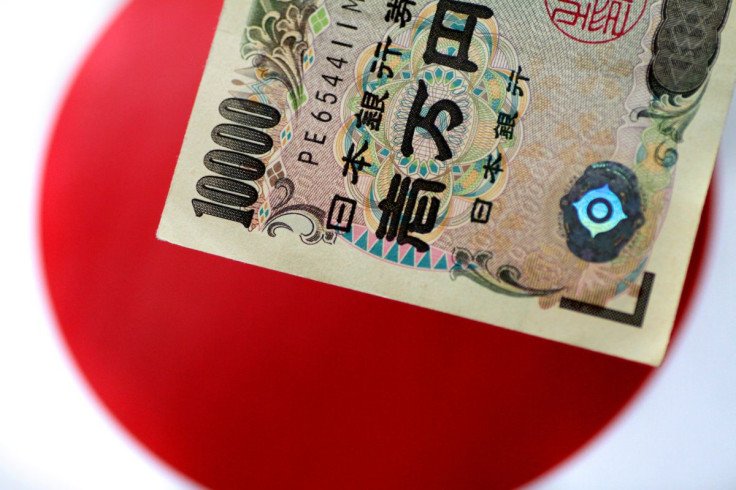A Weak-Yen Obsession Dents Japan Amidst Ukraine Crisis

Currency devaluation has been the preferred choice of Japan to boost its gross domestic product for decades. But the weak-yen obsession has now started to bite Asia's second-biggest economy amidst the Ukraine crisis.
Combined with soaring crude oil and vital commodity prices, import costs have increased and consumer spending has taken a beating in the resource-scarce country.
Japan finance minister Shunichi Suzuki said April 19 that a weakening yen caused damages to the economy than the benefits accruing to it. A weakened yen that floods global markets has been the accepted norm among policymakers in Japan since the days of former prime minister Shinzo Abe.
A weak yen has its merit, but its demerits have a greater impact under the current situation, Suzuki told parliament and added that stability in the currency market is important.
The Japanese currency has depreciated against the U.S. dollar rapidly due to the widening monetary policy gap between the two countries.
While the Bank of Japan (BOJ) prefers aggressive monetary easing, the Federal Reserve goes for tightening its grip to arrest the rising inflation and has decided to raise key interest rates for the first time since 2018.
On the sidelines of the Group of 20 (G20) financial leaders' meeting on April 21 in Washington, Suzuki held talks with U.S. Treasury Secretary Janet Yellen amid the yen's rapid decline to a 20-year low against the dollar -- its weakest level since May 2002.
Bank of Japan Governor Haruhiko Kuroda has said that the yen's depreciation against the dollar has been "quite rapid," and does not auger well for the country's fragile economy.
Economists predict that Japan might experience bad inflation -- a combination of slowdown and higher costs -- but BOJ continues to defend its ultra-low rate policy. However, the central bank has said that commodity inflation may force it to change its monetary policy.
The pandemic, global supply chain disruptions, and the Russian invasion of Ukraine have made the outlook uncertain for the Japanese economy as import costs have increased manyfold.
Despite the quasi-emergency measures in late March, private consumption is yet to take off in the country and soaring raw material and manufacturing costs have dented the bottom line of companies.
Japanese firms, which mainly rely on overseas resources, were further hit by the Ukraine crisis amidst a shortage of vital components like semiconductors. The resource scarcity has thrown the famous Japanese automobile industry out of gear. Japan is a leading member of the western campaign to isolate its neighbor Russia from the global financial network.
Japan's economy, facing downward pressure from the Ukraine crisis and the yen's depreciation, was further plagued by China's radical zero COVID policy. In late March, China locked down Shanghai, home to a population of about 25 million.
The country is yet to come to terms with the trade deficit it witnessed in March as exports to China, Japan's biggest trading partner, slowed sharply.
Exports to China account for more than a fifth of the country's total shipments in value terms. Though Imports soared 31.2 percent in the year to March, the rise in exports was 14.7 percent, resulting in a trade deficit of 412.4 billion yen ($3.19bn).
The trade deficit has exposed the Japanese economy's vulnerability to soaring import costs.
However, exports to the U.S, the world's top economy, increased 23.8 percent on robust demand for motor vehicle parts and power-generating equipment.
Markets are rife with speculation that Japan may act to resist further fall in its currency, and may buy yen and raise interest rates.
But the International Monetary Fund (IMF) has put all speculations to rest. There is no immediate need for Japan to reverse its ultra-low interest rates, a senior IMF has said.
The yen's recent declines have been driven by fundamentals and do not call for a change in its economic policy, Sanjaya Panth, deputy director of the IMF's Asia and Pacific Department, said April 21.
Panth said that with inflationary pressures still under control, there was no need for the third-largest economy in the world to change its ultra-loose policy.
The global yen carries trade - borrowing at low rates to invest in higher-yielding currencies or assets overseas - and the status of Japan as the early mover on prime assets in the U.S., U.K., and south-east Asia is here to stay.





